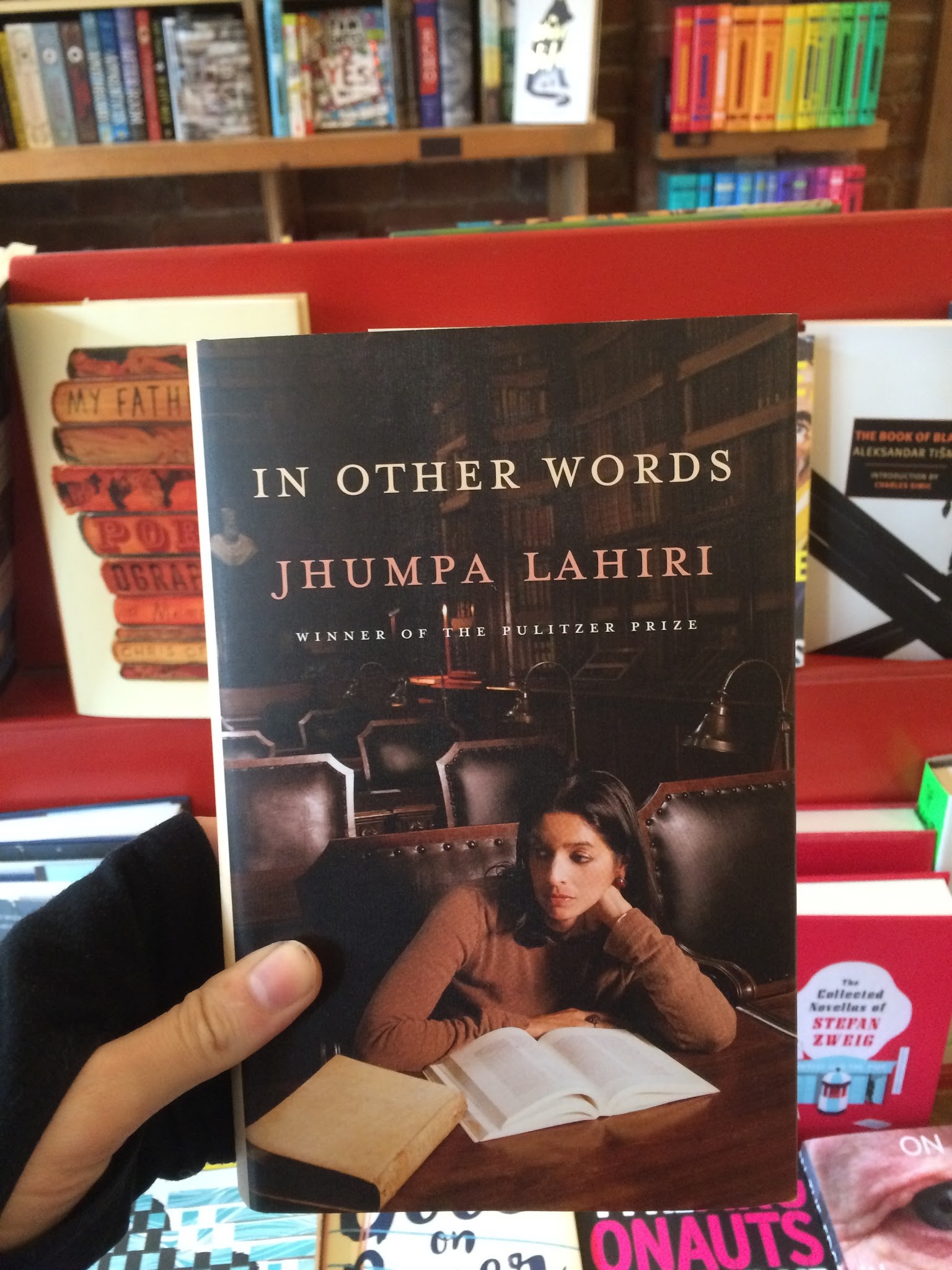Jhumpa Lahiri’s “In Other Words” Doesn’t Just Translate, It Transforms

Belinda Huang ‘17 / Emertainment Monthly Books Editor
Near the end of the In Other Words, author Jhumpa Lahiri describes the book as “hesitant, and at the same time bold.” A memoir written in Italian, it’s certainly a jump from her well known, English-language fiction, having won the Pulitzer Prize, been nominated for the Man Booker Prize and National Book Award, and been adapted for the screen. Yet it is precisely this sense of hesitance, the honest and tentative relationship she has with the new language she writes in and the act of writing so personally, that makes it compelling.

The English edition, published by Alfred A. Knopf in 2016, features an English translation by Ann Goldstein, a translator who has also brought Elena Ferrante’s work to English-speaking readers. With all the expectations of Jhumpa Lahiri’s writing, the language in In Other Words feels surprisingly sparse. Instead of the lush, layered prose and historical detail that could characterize her previous work in fiction, this book unfolds deliberately, fully delving into each metaphors and image. The twenty-four short chapters are linked by this meditative tone and unhurried pace instead of chronology or specific events.
This also makes for a thematically rich book, which can be read in many ways. It’s a memoir, scattered with biographical information and notes on earning and living an author’s life. It’s a book about language, and the complex relationships between language, geography, and personal identity. It’s also about how breaking from one’s tightly-held identities—racial, linguistic, writerly—can help bring oneself into focus in unexpected ways.
These ideas build on themes that Lahiri has addressed in her previous writing, but applied more directly to her own experience. When she writes, “the concepts of exile and return imply a point of origin, a homeland…I am exiled even from the definition of exile,” she speaks to the life of an immigrant. Even though moving to Italy and speaking/writing only in Italian was a choice, it is not without its difficulties, recalling many of the same uncertainties about place and belonging that Lahiri experienced as an Indian growing up in America.
Yet there is also joy and gratification in the journey. The book places the Italian text and English translation side by side, lining up page after page so the reader can follow along the Italian on the left and the English on the right. Even someone totally unfamiliar with Italian could sound out the phrasings, recognize the English cognates, and experience the satisfaction of coming to terms with a new language in a small-scale encounter that echoes Lahiri’s own.
The work that Lahiri does is perhaps best epitomized by the front cover. The image is a picture of the author sitting in a library, looking into the distance with a book open in front of her. Not writing, but reading and thinking. Though In Other Words may not generate the same kind of literary fervor as her earlier work, it affirms Lahiri’s aptitude for contemplation and observation as she transforms personal experiences into a universal statement about the complexities of life, desire, and identity.